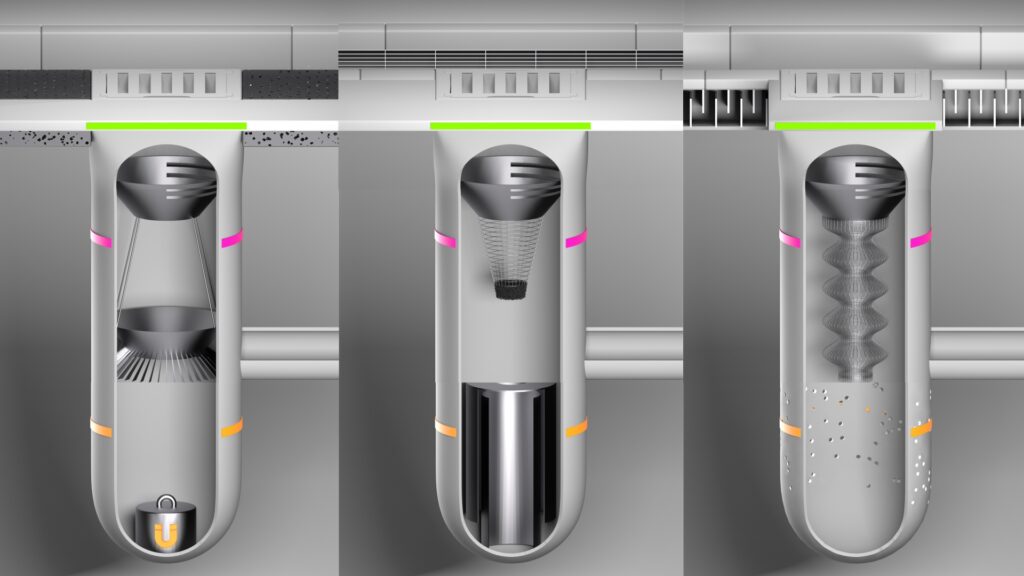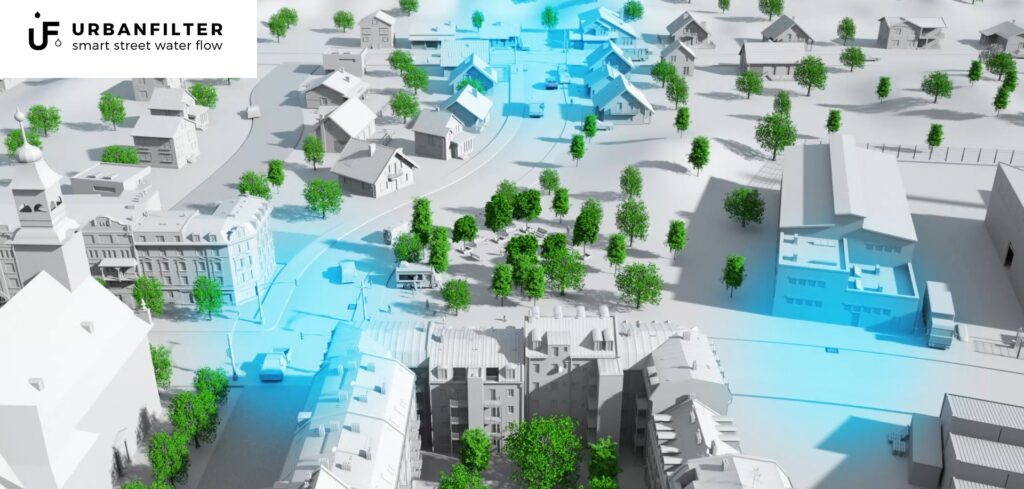The Urbanfilter project has reported positive interim results following initial field and lab tests.
Launched in September 2020 and developed by The Audi Environmental Foundation in conjunction with the Technical University of Berlin (Department of Urban Water Management), the Urbanfilter works by filtering water from urban runoff to prevent tire road wear particles and other environmentally harmful substances from reaching sewers or other bodies of water.
Tests were carried out at a laboratory at TU Berlin, where the filters were shown to work effectively and without clogging up with debris. The filters are capable of permanently trapping microplastics up to 3mm and other street waste.
“The system does this not just when it’s drizzling, but also when it’s lashing rain,” commented Daniel Venghaus, research associate in the Department of Urban Water Management at TU Berlin.
In addition to the lab tests, the Urbanfilter has been subjected to real-world tests on a road in Berlin. Having passed a stress test during several storms in mid-February 2022, the filter is expected to continue serving the location until the end of the year. Researchers involved with the project aim to take samples of the intake and of the water draining away to ascertain the filter’s effectiveness in a range of different seasons and operating conditions.
The project has also initiated discussions with the ADAC Driving Safety Center in Berlin-Brandenburg for the installation of filters on its routes to better understand the filtering of wear particles in a number of different driving scenarios.
The sediment filters are divided into three zones consisting of street, sewer and drain and are made up of nine modules. Depending on the location, up to three modules can be combined to achieve the best results. Filtering ultra-fine particles, however, is still proving a challenge for researchers.
“The system has already passed tests with ground tire rubber between 20 and 1,000 micrometers (µm) in size in conditions of light to medium rainfall. Now we’re working on improving the filter performance when there is strong rainfall,” explained Venghaus.
By conducting the tests and additional development work, the Audi Environmental Foundation and the Technical University of Berlin aim to leave an Urbanfilter in operation for up to a year without the need for maintenance or cleaning. By utilizing intelligent connectivity, the pair will be able to predict the contamination level of each filter, as each location differs greatly in terms of traffic volume, street cleaning times and weather.
Approximately 110,000 metric tons of tire and road wear particles or microplastics end up on German streets each year, with wind and rain then moving these materials through sewers into soil, rivers and oceans.
“Our goal is to take preventative actions wherever possible so that fewer microplastics get into the environment,” explained Rüdiger Recknagel, director of the Audi Environmental Foundation.




